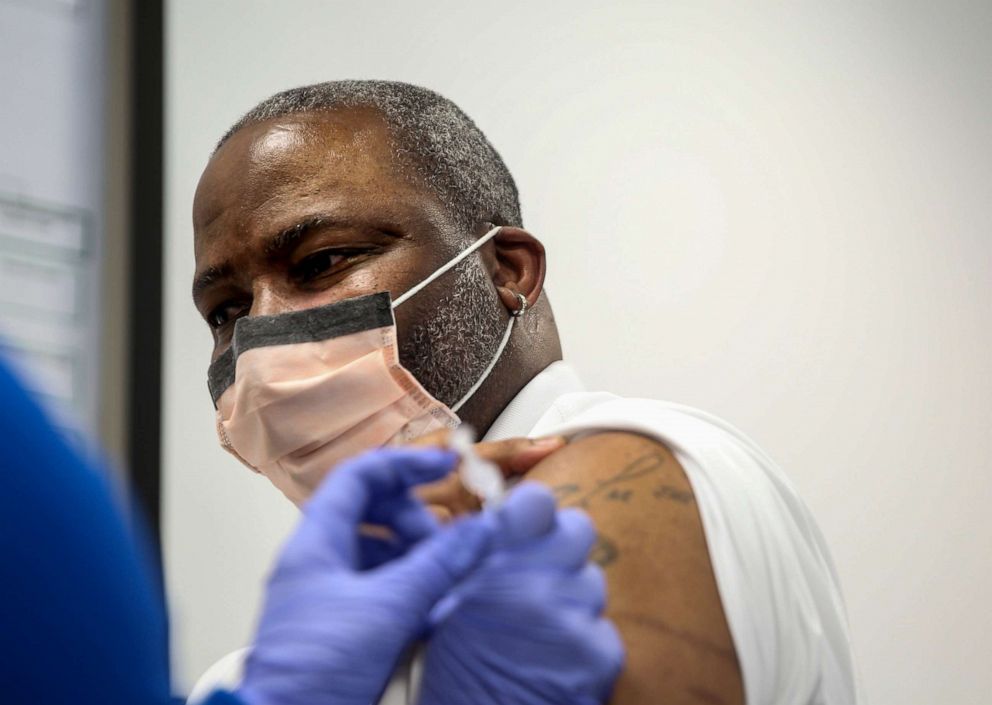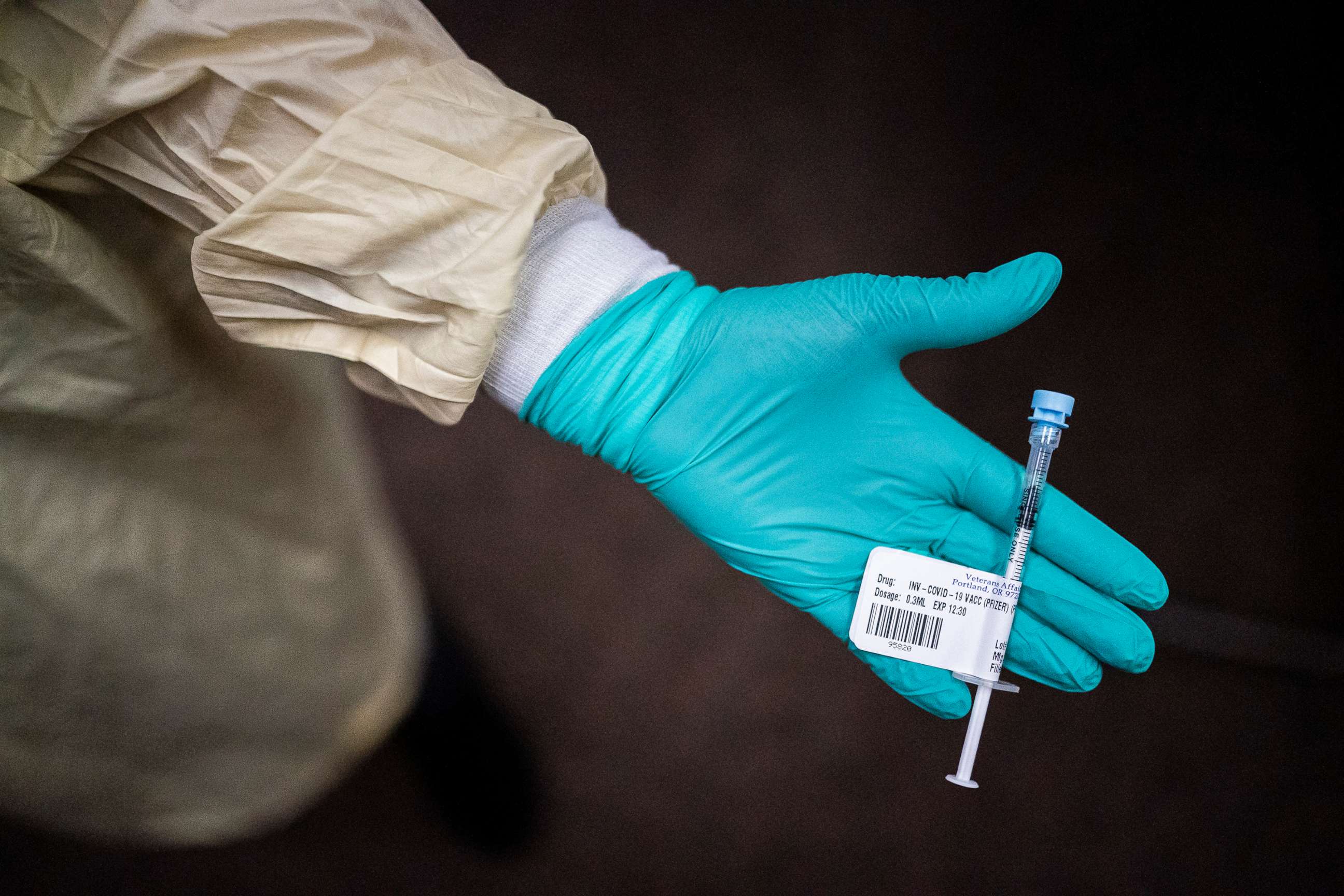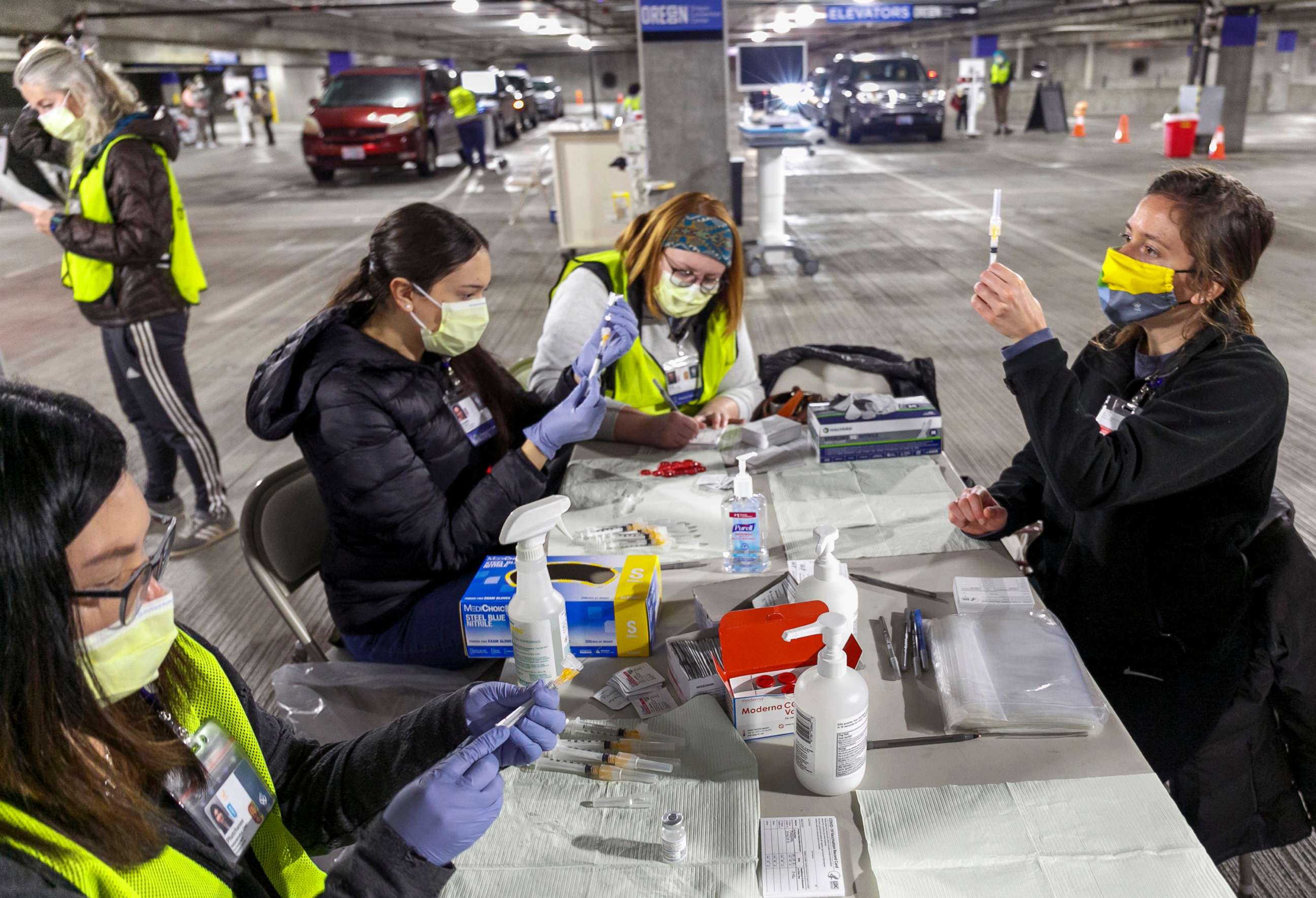Racial disparities trouble COVID-19 vaccine rollout
"There's a gap that needs to be closed."
In the ongoing effort to vaccinate Americans against COVID-19, communities are expressing concerns around racial disparities in the distribution of limited doses.
In Florida's Miami-Dade County, 17.7% of the population is Black, according to U.S. Census data. But so far, only 6.5% -- 11,001 -- of the 167,129 people who have been vaccinated in the county so far identify as Black, according to the state health department's latest vaccination report, released Thursday.
At the same time, vaccination rates have been higher among white residents, who make up 79% of the county's population. According to the state data, 66% -- 110,505 -- of people who have been vaccinated so far are white.

The Miami-Dade NAACP branch has drawn attention to this disparity, as minorities are at an increased risk of getting sick and dying from COVID-19, according to the Centers for Disease Control and Prevention.
"We acknowledge that there is a limited supply of the COVID-19 vaccinations. However, they must be distributed equitably throughout all communities within the county," Miami-Dade NAACP branch President Daniella Pierre said during a media event earlier this week.
The branch has called on the county to bring doses to "urban core" neighborhoods, which the city did Wednesday when it opened a new site at the Tuscany Cove Apartments in Liberty City.
"I live here and it's more convenient for me here," 85-year-old resident Virginia Robinson told ABC Miami affiliate WPLG.
"I was telling all my friends about it because they said they had a hard time getting," she told the station.
Florida residents ages 65 and older are currently eligible for the vaccine.
"We're doing everything that we can in different parts of the city to make sure the most vulnerable in our community are being vaccinated," Miami Mayor Francis Suarez said during a press briefing Wednesday.
Last week, Miami-Dade County Mayor Daniella Levine Cava signed an emergency order requiring all local hospital systems to report daily vaccine supply, immunizations performed and demographic data.
"This order is meant to ensure that no community is left behind and all residents 65+ have equal access to this lifesaving vaccine," she said on social media.

Education on the vaccine's benefits is key in reaching minority communities, especially Black residents, Pierre said.
"For a community that has years of fear and distrust, and rightfully so, instead of just giving us a vaccine, please provide the education, so it can lessen the fears that individuals may have," she said.
A study this month from the Kaiser Family Foundation found that 60% of Black and Hispanic adults said they don't have enough information about where to get the vaccine -- compared to about half of white adults.
In South Carolina, some Black residents say they're not getting enough information about the vaccine.
"There's a gap that needs to be closed," Marilyn Hemingway, founder of the Gullah Geechee Chamber of Commerce in Georgetown, South Carolina, told ABC Florence, South Carolina, affiliate WPDE.
One hindrance is limited access to community spaces, like the church, during the pandemic.
"The church, as a community institution in Black and brown communities, is not functioning as it usually does," Hemingway said.
Internet access is another issue. According to the Alliance for Education Excellence, 30.6% of Black and 31.2% of Hispanic households in the U.S. are without high-speed internet -- compared to 20.9% of white households.
State health officials told WPDE they're working with leaders in the Black community to reach residents.

Efforts to prioritize underserved and vulnerable groups in the vaccine rollout have been met with challenges in some areas.
In Dallas last week, officials backtracked on a plan to prioritize the most vulnerable ZIP codes after three high-income zip codes received a disproportionate share of the county's first COVID-19 vaccines. The move came after the state threatened to reduce the city's vaccine supply, saying the plan was "out of compliance with the previously agreed-upon guidelines."
After initially proposing to include communities of color in Oregon's next phase of vaccinations, the state's Vaccine Advisory Committee -- tasked with helping to equitably distribute the state's limited supply of COVID-19 vaccines -- ultimately decided Thursday to not include them in their latest recommendations to state health officials.
"We're not able to prioritize services or make decisions based on services solely on somebody's race or ethnicity," Public Health Director Rachael Banks said during Thursday's committee meeting.



